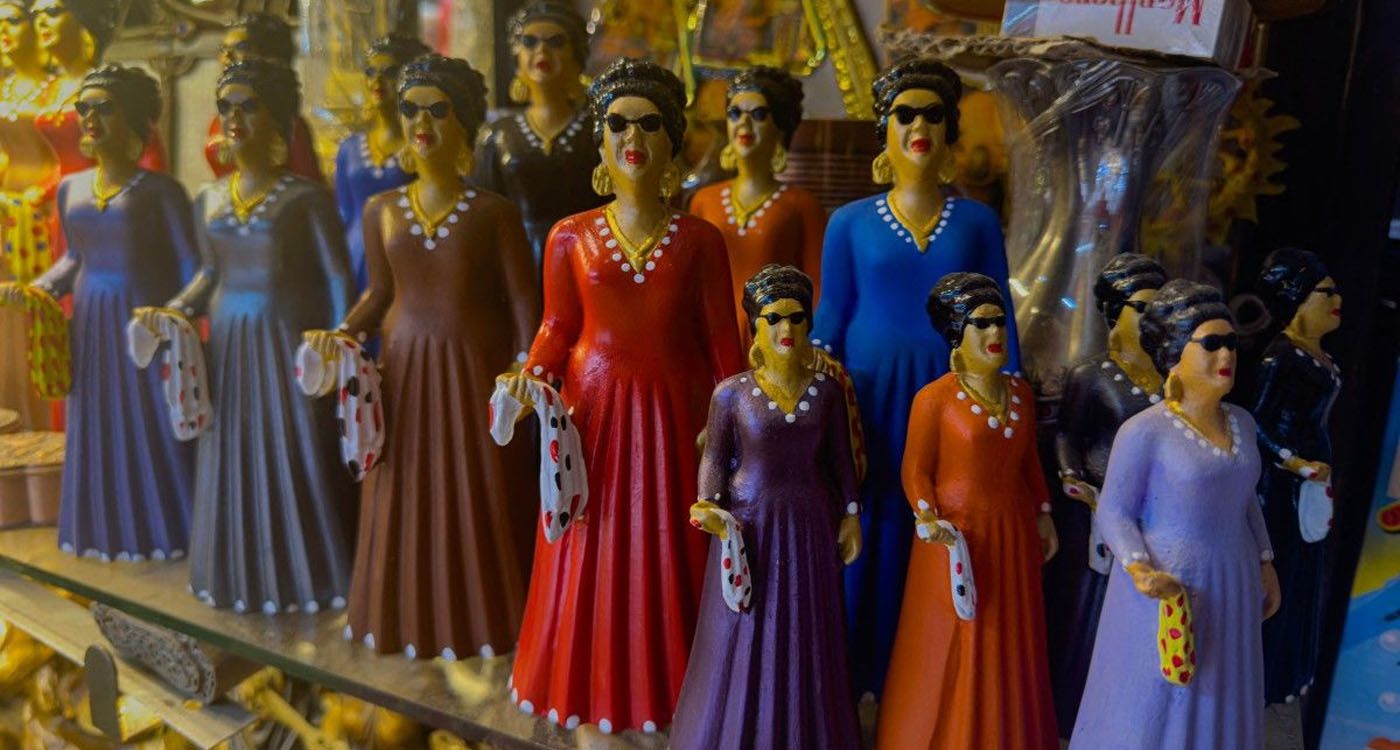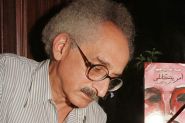
Umm Kulthum’s voice continues to captivate, 50 years after her passing, celebrated across the Arab world and beyond.
In the bustling alleys of Khan al-Khalili, Cairo’s iconic central market, the rich and soothing voice of Umm Kulthum drifts from a small café. Inside, friends gather over tea and shisha, savoring the moment.
But as soon as Enta Omri (You Are My Life) begins to play, conversations pause. Patrons softly sing along to the legendary 1964 masterpiece composed by Mohammed Abdel Wahab.
"She is the voice of the nation," says Aya Khamis, 36. The café’s walls are adorned with sepia-toned photographs of the iconic singer, alongside posters of her unforgettable concerts.
Abou Ahmad, the café’s owner, carefully adjusts the volume on an antique tape player. "As long as people listen to music, Umm Kulthum will never be forgotten. She’s always with us," he tells AFP.
Half a century after her death on February 3, 1975, Umm Kulthum remains ever-present. From Baghdad to Damascus, Tunis to Beirut, her voice continues to sing of love, longing, and heartbreak.
A Day Without Her
Outside the café, figurines of Umm Kulthum, donning her signature scarf and sunglasses, are displayed on wooden stands. "These are my bestsellers," says Shady Saïd, a 37-year-old vendor.
In Zamalek, an affluent district of Cairo, a bronze statue of the singer stands tall. Across the Nile, her museum showcases iconic dresses, handwritten letters, original recordings, and her famous diamond-studded sunglasses.
Surprisingly, most visitors are teenagers. Rodina Mohamed, 15, praises her talent: "She never goes out of style because she was a perfectionist with her lyrics, melodies, and performances."
An Enduring Legacy
Umm Kulthum’s influence extends far beyond Egypt. Youssef Hamad, a 77-year-old retired engineer, meets friends daily at Baghdad’s Umm Kulthum Café, established in 1970. "She sang Baghdad, the Castle of Lions, and here I feel closest to her," he says.
His companion, Khazaal Abou Ali, 83, is a devoted fan. "She once sang, If a day passes without seeing you, it doesn’t count in my life. For me, a day without her voice is a day lost."
The Life of a Legend
Born in 1898 to a modest family in the Nile Delta, Umm Kulthum became the most renowned voice in Arabic music. Her father, an imam, recognized her talent early on but, given the societal norms of early 20th-century Egypt, disguised her as a boy, wrapping her in Bedouin attire to hide her identity.
Her deep voice and commanding stage presence captivated audiences. In the 1930s, she moved to Cairo, where she revolutionized music by blending classical poetry with grand orchestral compositions. Her concerts were legendary, often lasting up to five hours, filled with improvisation and repeated verses.
Even Western musicians were mesmerized. Shakira and Beyoncé incorporated her music, and legends like Maria Callas, Robert Plant, and Bob Dylan admired her. "She’s one of my all-time favorite singers," Dylan once said.
A Cultural Icon
Her music became the soundtrack of Egypt’s transformation, particularly after the 1952 revolution. A symbol of the country’s new republican identity, her patriotic songs inspired generations. In 1967, she performed at Paris’s Olympia.
A Biopic in the Spotlight
Umm Kulthum’s story is set to return to the spotlight with an upcoming biopic, El-Set (The Lady), highlighting key moments of her life, including her leadership of the Musicians’ Syndicate in the 1940s.
Despite working in a male-dominated industry, Umm Kulthum controlled every detail of her music and image. "She held immense power in a field ruled by men," says art critic Fayza Hendawi. "She was incredibly strong and meticulously managed every aspect of her career, from her songs to her personal choices."
With AFP



Comments